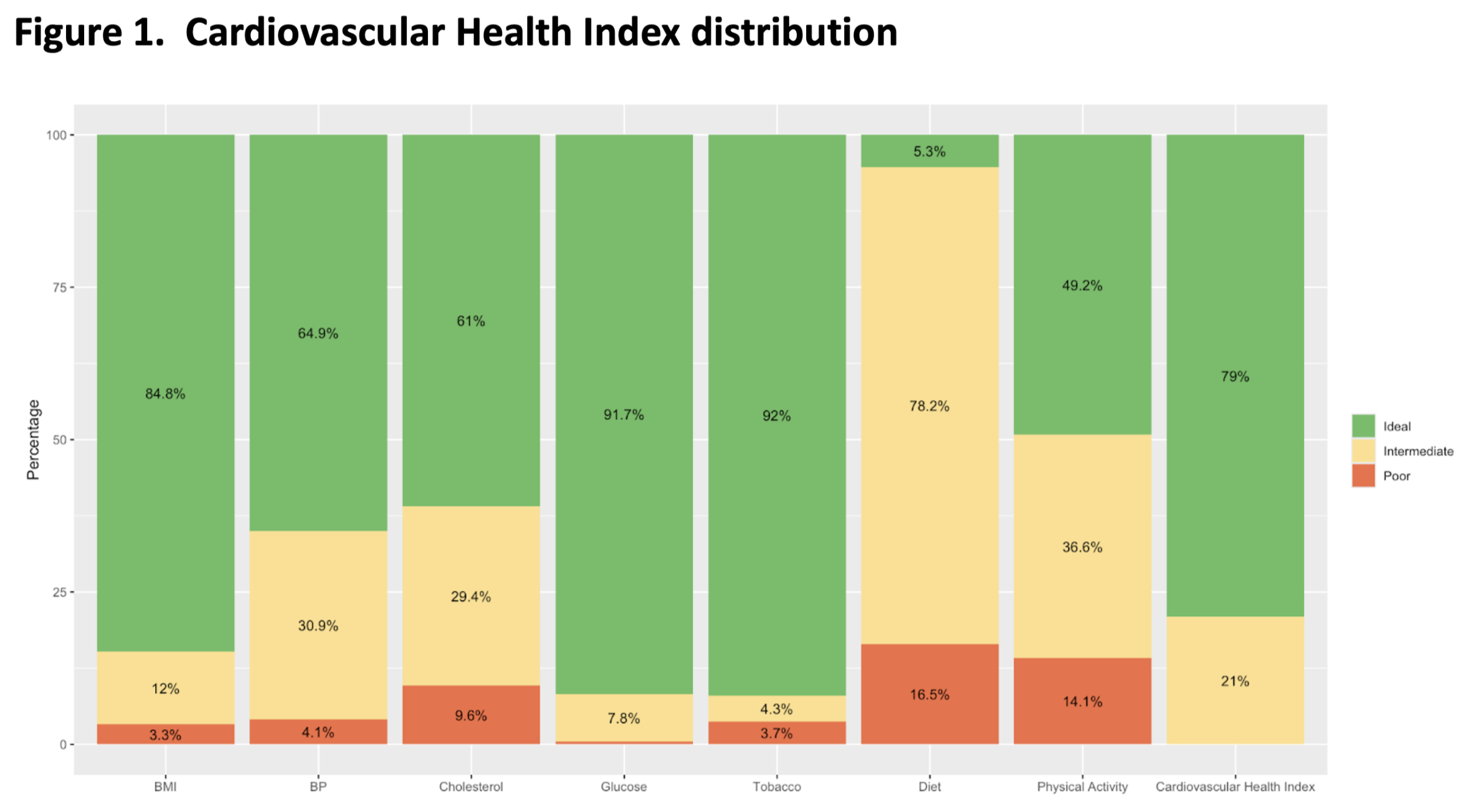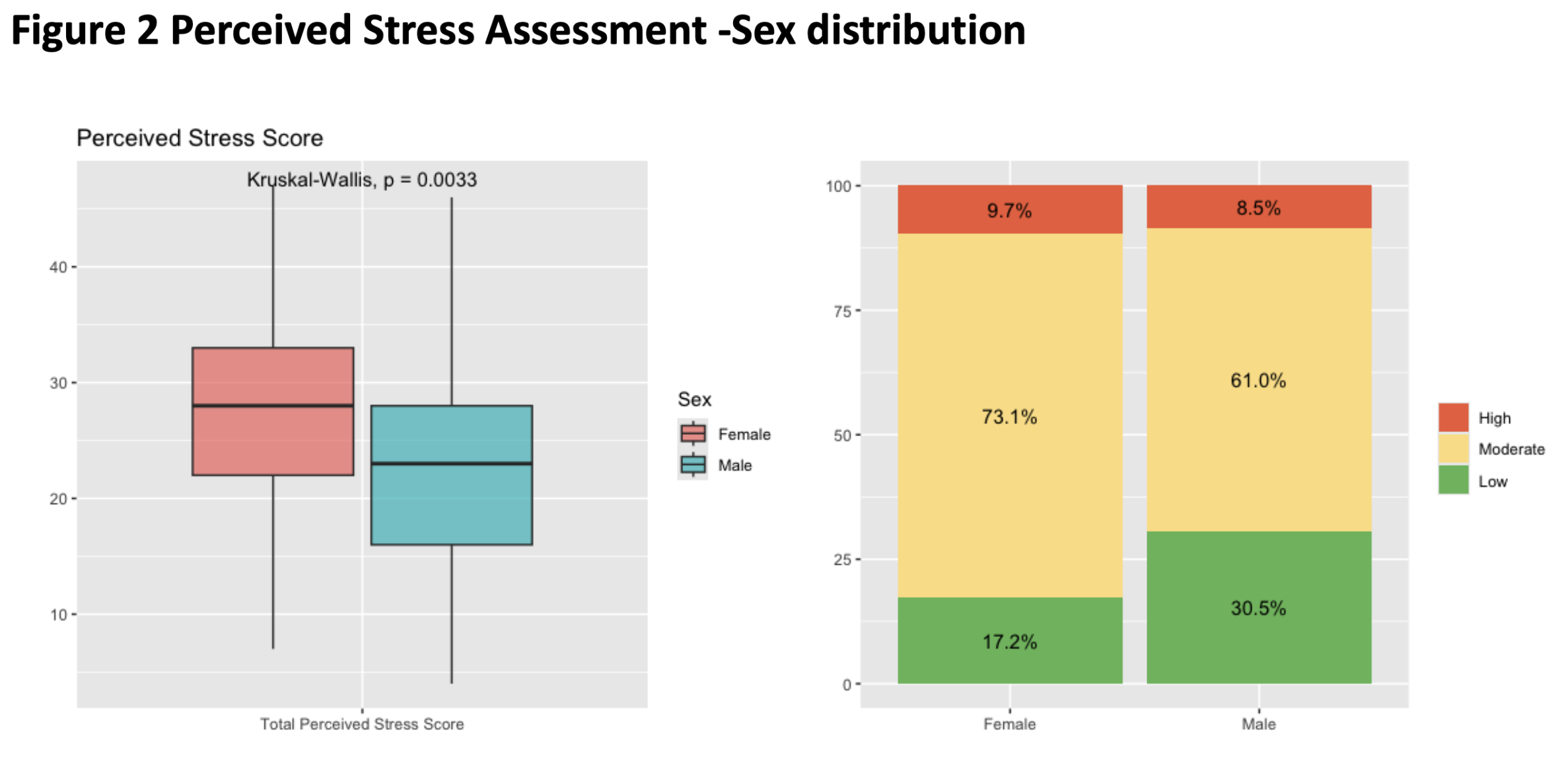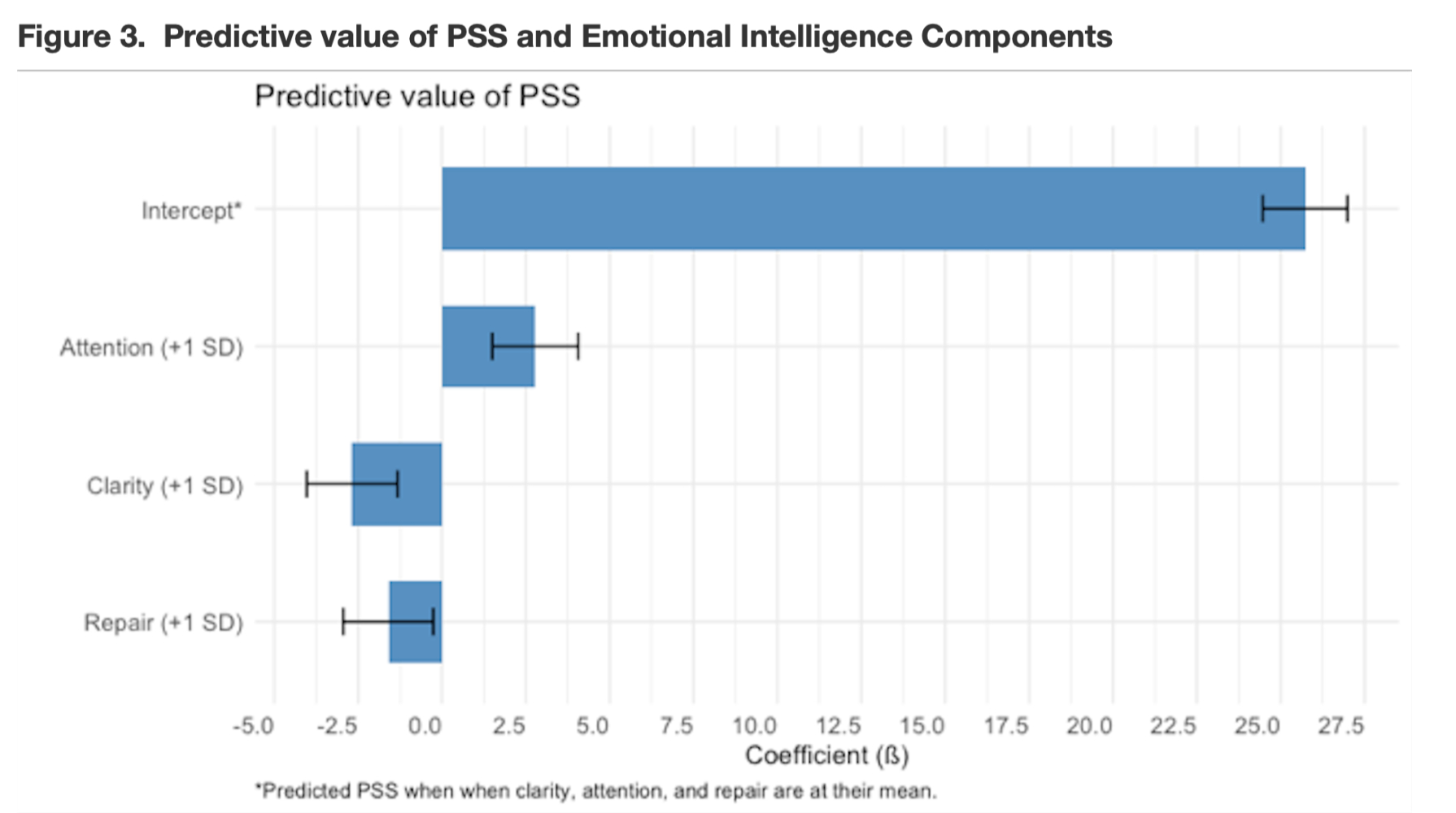Final ID: P3135
Associations Between Cardiovascular Health, Stress, and Emotional Intelligence in First-Year Medical Students; Cross-Sectional Study
Abstract Body: Introduction: Medical students encounter stressors that affect their psychological and cardiovascular health. This study aims to evaluate the relationship between cardiovascular health, perceived stress, physical activity, empathy, and emotional intelligence among first-year medical students in a Colombian university
Hypothesis: We assessed the hypothesis that Psychoemotional health influences cardiovascular health in medical students.
Methods: A cross-sectional study was conducted as a secondary analysis of the longitudinal project "Follow-up on Mind and Body Components in Medical Students at Universidad del Rosario." All first-semester students from 2019-2020 were invited to participate (IRB approval: CEIC 3907-2019). Nonprobabilistic convenience sampling was used. Cardiovascular health was assessed using the AHA’s Cardiovascular Health Index (CVHI) and waist-to-height ratio. Stress, empathy, and emotional intelligence were measured via the Perceived Stress Scale-14, Interpersonal Reactivity Index (IRI), and Trait Meta Mood Scale-24 (TMMS-24). Data were analyzed using correlation matrices and regression models
Results: Of the 196 participants (62% female), 79.1% had ideal CVHI, and 92.0% had no cardiovascular risk based on waist-to-height ratio. Moderate-to-poor scores were found in CVHI components: diet (94.7%), physical activity (50.7%), cholesterol (39%), and blood pressure (35%), see figure 1. CVHI was positively correlated with vigorous physical activity and TMMS-24 components (clarity and repair) and negatively correlated with perceived stress. The risk of intermediate CVHI increased with higher TMMS-24 attention (RR: 5.34, CI: 1.03-17.55) and the interaction between IRI personal distress and stress (RR: 2.32, CI: 1.06-5.05). TMMS-24 clarity reduced this risk by 33% (RR: 0.45-1.00). Most students reported moderate (68.6%) or high (9.2%) stress levels, with females reporting higher stress scores (F: 27.1 vs. M: 23.2), see figure 2. Moderate physical activity (RR: 0.71) and higher TMMS-24 clarity (ß: -2.68, CI: -4.02 to -1.33) and repair (ß: -1.60, CI: -2.94 to -0.26) were protective against stress, see figure 3.
Conclusions: In conclusion, most medical students had ideal CVHI, but moderate-to-poor scores in key components. Females experienced higher stress levels. Personal distress heightened the negative impact of stress on cardiovascular health, while moderate physical activity and emotional clarity and repair were effective coping strategies.
Hypothesis: We assessed the hypothesis that Psychoemotional health influences cardiovascular health in medical students.
Methods: A cross-sectional study was conducted as a secondary analysis of the longitudinal project "Follow-up on Mind and Body Components in Medical Students at Universidad del Rosario." All first-semester students from 2019-2020 were invited to participate (IRB approval: CEIC 3907-2019). Nonprobabilistic convenience sampling was used. Cardiovascular health was assessed using the AHA’s Cardiovascular Health Index (CVHI) and waist-to-height ratio. Stress, empathy, and emotional intelligence were measured via the Perceived Stress Scale-14, Interpersonal Reactivity Index (IRI), and Trait Meta Mood Scale-24 (TMMS-24). Data were analyzed using correlation matrices and regression models
Results: Of the 196 participants (62% female), 79.1% had ideal CVHI, and 92.0% had no cardiovascular risk based on waist-to-height ratio. Moderate-to-poor scores were found in CVHI components: diet (94.7%), physical activity (50.7%), cholesterol (39%), and blood pressure (35%), see figure 1. CVHI was positively correlated with vigorous physical activity and TMMS-24 components (clarity and repair) and negatively correlated with perceived stress. The risk of intermediate CVHI increased with higher TMMS-24 attention (RR: 5.34, CI: 1.03-17.55) and the interaction between IRI personal distress and stress (RR: 2.32, CI: 1.06-5.05). TMMS-24 clarity reduced this risk by 33% (RR: 0.45-1.00). Most students reported moderate (68.6%) or high (9.2%) stress levels, with females reporting higher stress scores (F: 27.1 vs. M: 23.2), see figure 2. Moderate physical activity (RR: 0.71) and higher TMMS-24 clarity (ß: -2.68, CI: -4.02 to -1.33) and repair (ß: -1.60, CI: -2.94 to -0.26) were protective against stress, see figure 3.
Conclusions: In conclusion, most medical students had ideal CVHI, but moderate-to-poor scores in key components. Females experienced higher stress levels. Personal distress heightened the negative impact of stress on cardiovascular health, while moderate physical activity and emotional clarity and repair were effective coping strategies.
More abstracts on this topic:
Accelerometer-Measured Physical Activity and Sedentary Behavior and Risks of All-Cause and Cardiovascular Disease Mortality Among Postmenopausal Cancer Survivors: The Women’s Health Accelerometry Collaboration
Hyde Eric, Stefanick Marcia, Skiba Meghan, Crane Tracy, Lee I-min, Lacroix Andrea, Bandoli Gretchen, Zou Jingjing, Crespo Noe, Parada Humberto, Evenson Kelly, Lamonte Michael, Nguyen Steve, Howard Annie Green
Neutrophils phenotyping and aggregation with platelets: genetic model for atherosclerosisMehran Heba, Li Liwu



